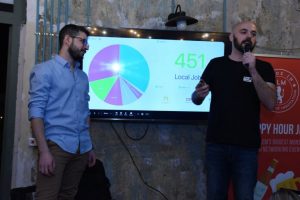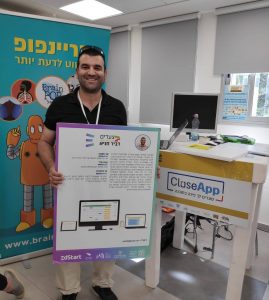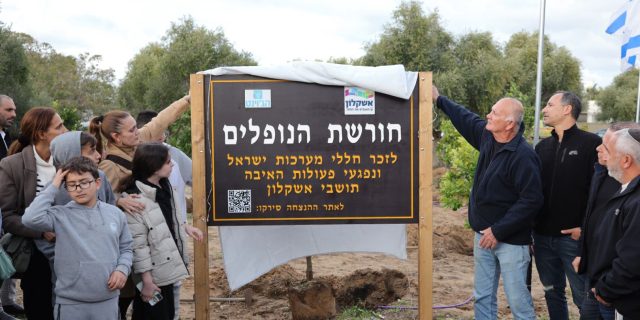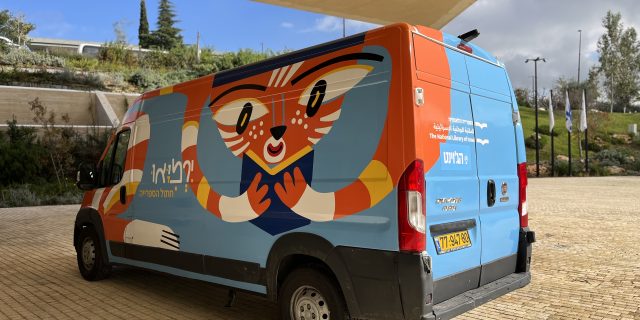Hackaveret, Israel’s social hub, recruited the nation’s innovation community to offer solutions to the pressing social challenges brought on by the coronavirus. Hackaveret is the Hebrew word for “The beehive” and is also a play on words on “hack.” It was founded by the Joint and the National Insurance Funds.
Three winners emerged from the “Hackaveret Challenges”: FreshBoard.City – a digital system for job seekers looking to return to the labor market; Meet in Place – a joint venture between the ‘Coing’ platform and the Eretz-Ir organization which strengthens local communities through digital means; and Steps – an educational method that helps parents connect to their children’s remote learning and teachers to be in contact with parents.
The three Hackaveret Challenges were:
- Flexible Remote Work (led by the Ministry of Labor, Social Affairs and Social Services) – to increase employment opportunities and connect job seekers in the geosocial periphery with employers in urban centers
- Working with Communities Virtually (led by the Ministry of Labor, Social Affairs and Social Services) – to strengthen local communities in times of crisis with the assistance of technological tools
- Connecting Educators and Families to Improve Remote Learning (led by the Ministry of Education) – to promote a partnership between staff and parents in elementary schools, while supporting each student’s learning skills and development

In the first category (Flexible Remote Work), FreshBoard.City took the prize for creating an automated job board where employers do not have to advertise manually; rather, the board self-updates directly from companies’ websites.
The goal was to access thousands of employment opportunities listed on company websites but not on job boards. This search engine started as a project of Made in JLM, an organization that is developing the hi-tech ecosystem in Jerusalem. It became the official job board of the Jerusalem Municipality and is branching out to other industries. Because information is updated daily, it provides a real-time snapshot of supply and demand in the job market.
FreshBoard City was developed by Snir Sharristh, a graduate of the Hebrew University of Jerusalem; Natanel Young, the founder of the Bagel Studio software firm; and Roy Munin, CEO of Made in JLM, an award-winning entrepreneur.

In the second category (Working with Communities Virtually), Meet in Place designed a solution for urban areas, using technology to continue operating in an emergency with the same effectiveness as during normal times. The platform will benefit social workers and grassroots activists by coordinating community activities and mobilizing residents.
It stimulates the local economy by connecting small businesses to community activities while complying with COVID-19 social distancing rules. The developers joined forces with social workers and technology experts from the fields of economics, data, and automation.

In the third category (Connecting Educators and Families to Improve Remote Learning), Steps presented a learning tool that creates a “common language” among teachers, students, and parents, developing educational values along with behavioral and social skills. The program helps manage emotional problems and improves the educational climate, especially during this period when many children are not physically present in the classroom.
Hackaveret Challenges encourage the development of innovative solutions at a fast pace to meet the needs of the current crisis.
“The coronavirus presents us with a new situation in terms of the complex social challenges we face, requiring rapid response,” said Rani Dudai, of Joint Israel Management Board. “The Hackaveret Challenges accelerate the development of creative social solutions from the local to the national level. The willingness of the Ministries of Education, Labor, and Welfare to connect to entrepreneurship and social innovation is a welcome development for Israeli society, and we thank them for choosing Hackaveret.”
Each of the three winning projects will receive a grant of NIS 150,000 ($44,000) for a pilot program, accompanied by representatives from the relevant government ministry, which will last for six to nine months.
Contact Hackavert at [email protected]




